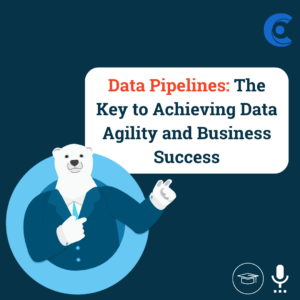How Data Pipelines Fuel Informed Decision-Making and Business Innovation

In today’s data-driven world, data pipelines are the backbone of effective data engineering. They seamlessly collect, transform, and deliver data to various applications and data warehouses, ensuring that the data is accessible, reliable, and ready for analysis.
Understanding the Data Pipeline’s Anatomy
The data pipeline is a complex network of interconnected stages, each playing a crucial role in transforming raw data into usable information. Here is a step-by-step guide to understanding this process:
-
Data Ingestion: The first stage involves capturing data from various sources, such as sensors, databases, and external systems. Data engineers must carefully design and implement data ingestion processes to ensure data integrity and completeness.
-
Data Extraction, Transformation, and Loading (ETL): This stage involves extracting data from its source, transforming it into a standardized format, and loading it into a destination system, such as a data warehouse or data lake. Data engineers employ various techniques to cleanse, enrich, and harmonize data during this process.
-
Data Storage and Management: Once data reaches its destination, it must be stored and managed effectively. Data engineers design and implement data storage solutions that ensure data durability, accessibility, and scalability.
-
Data Processing and Analysis: Data analysts and scientists leverage data processing and analysis tools to extract meaningful insights from the stored data. Data engineers provide the infrastructure and tools that enable these insights to be generated and shared.
-
Data Monitoring and Optimization: Data pipelines are dynamic systems that require continuous monitoring and optimization. Data engineers employ monitoring tools to identify bottlenecks, performance issues, and potential data quality problems.
What Data-Driven Approaches Can Offer
The future of an organization can be secured by investing in data engineering. Businesses can achieve the following with a well-crafted data pipeline:
-
Make Informed Decisions: Data-driven decision-making becomes a reality, as organizations can rely on accurate and reliable data to guide their strategic choices.
-
Optimize Operations: Data-driven insights enable businesses to identify inefficiencies, streamline processes, and optimize resource allocation.
-
Gain a Competitive Edge: Data-driven organizations can anticipate market trends, understand customer behavior, and develop innovative products and services.
A data pipeline is the engine that drives data-driven decision-making. Data pipeline engineering opens the door to transforming businesses, solving complex problems, and driving innovation by unlocking the immense potential of data.
